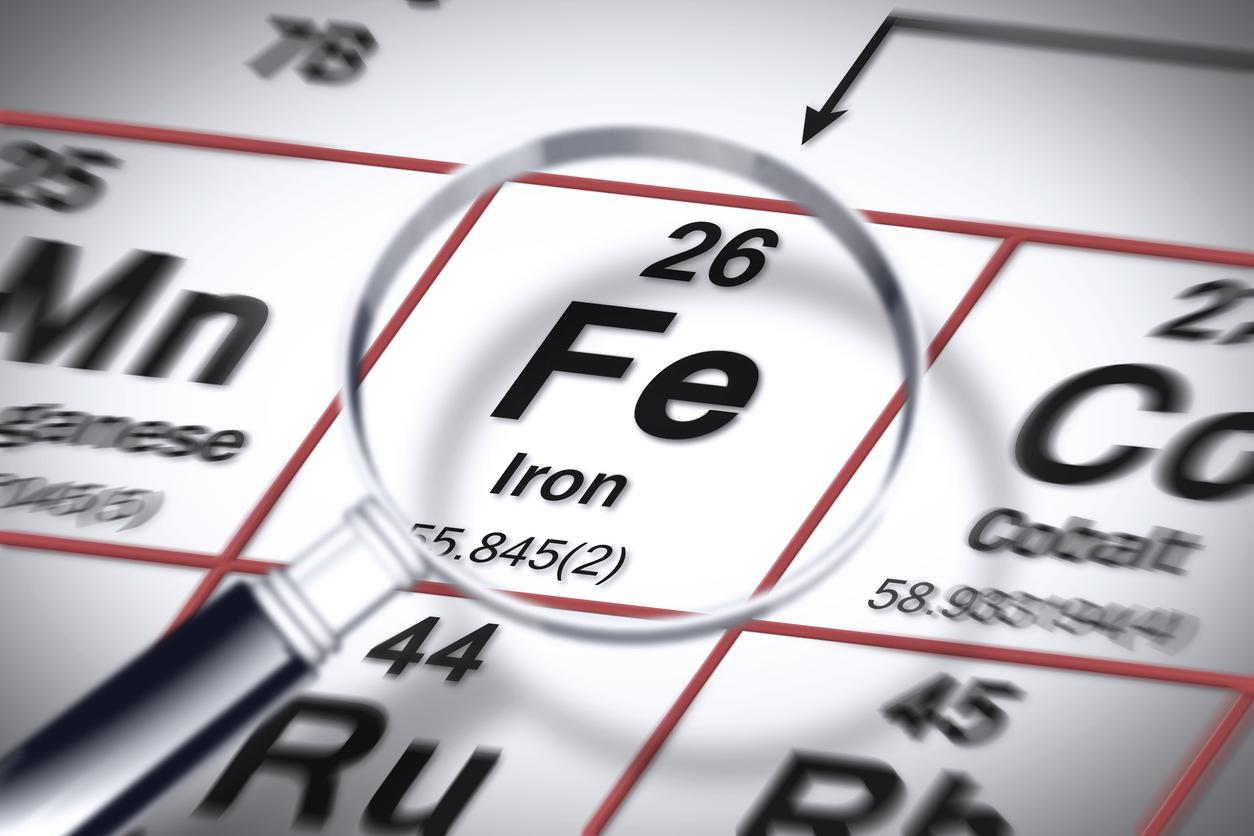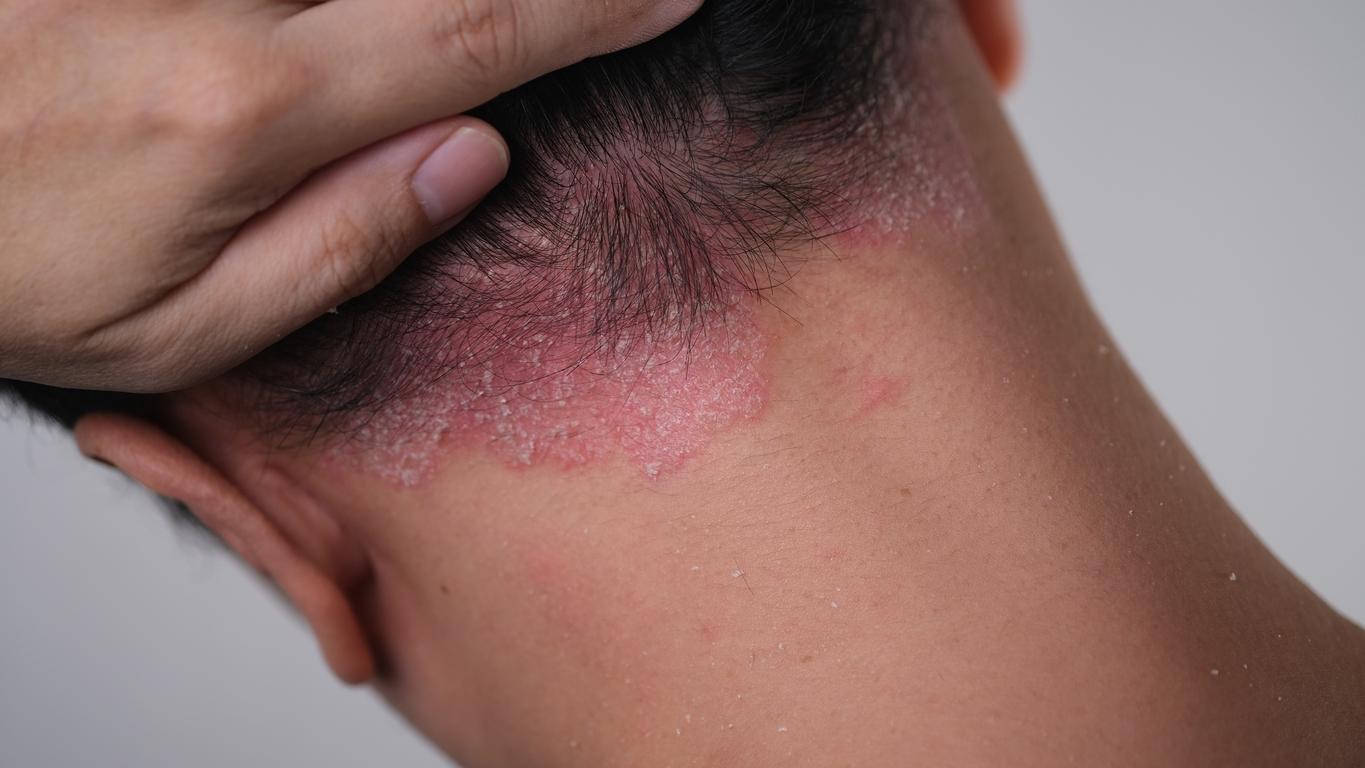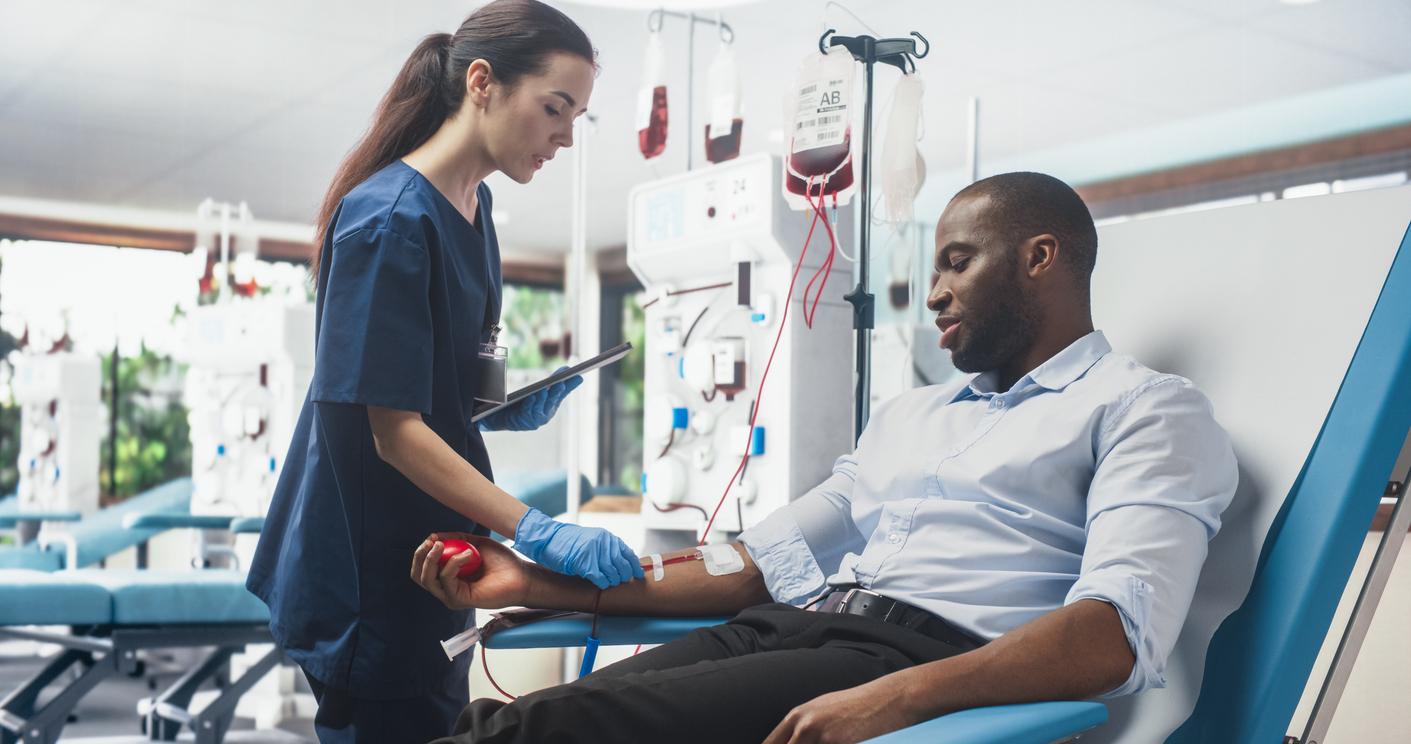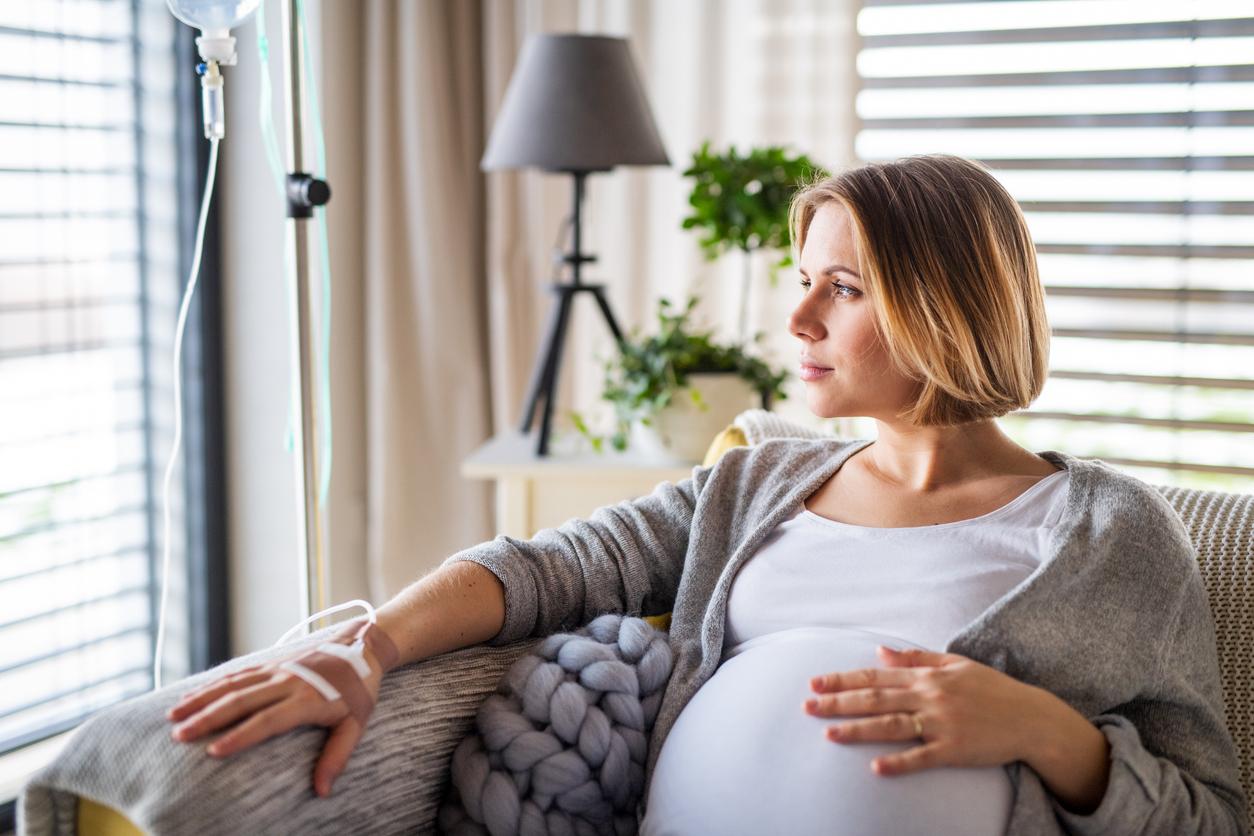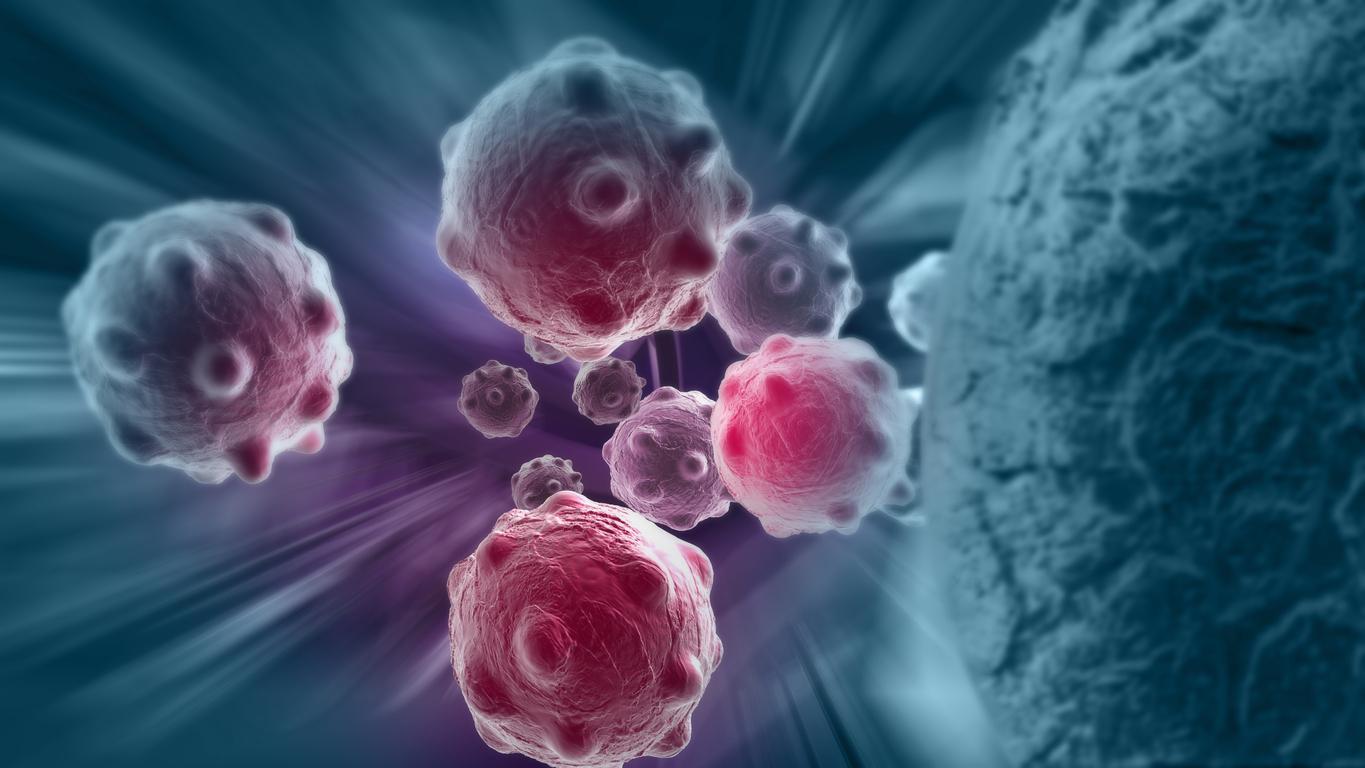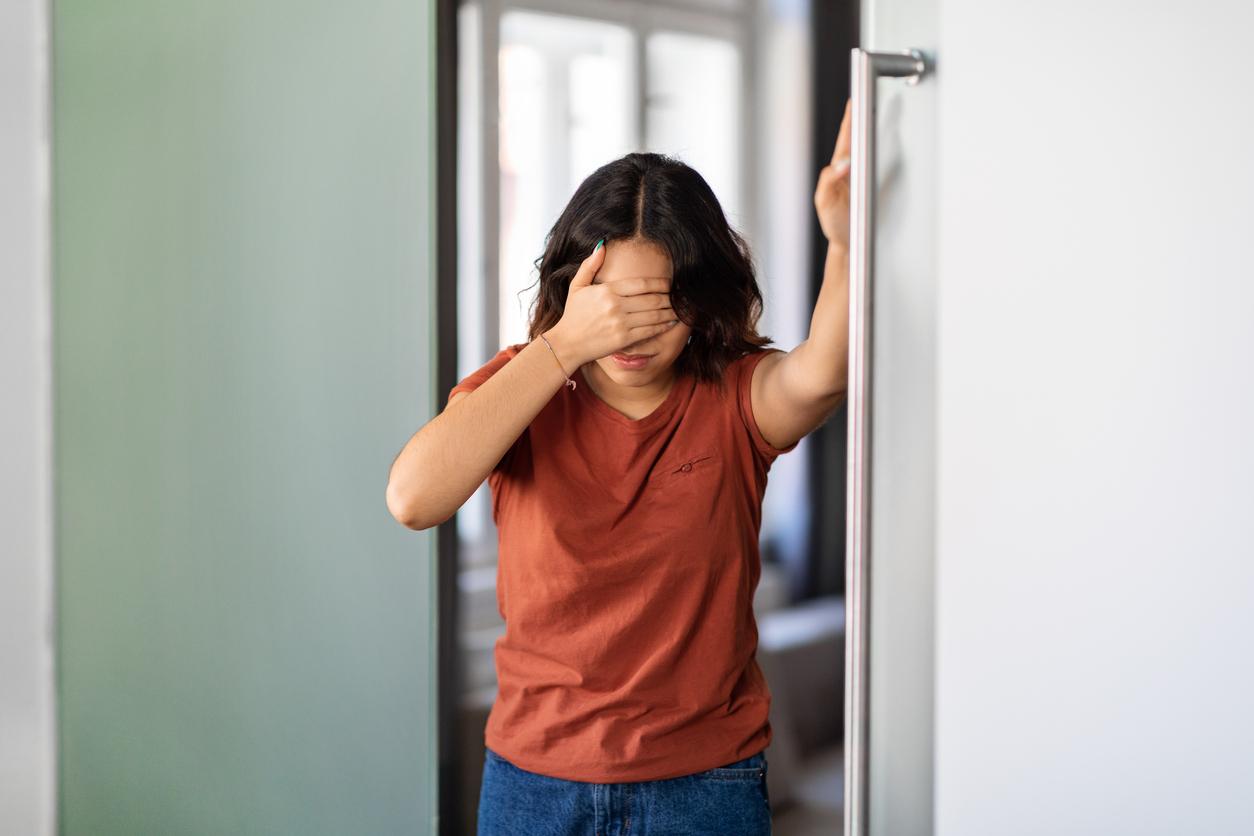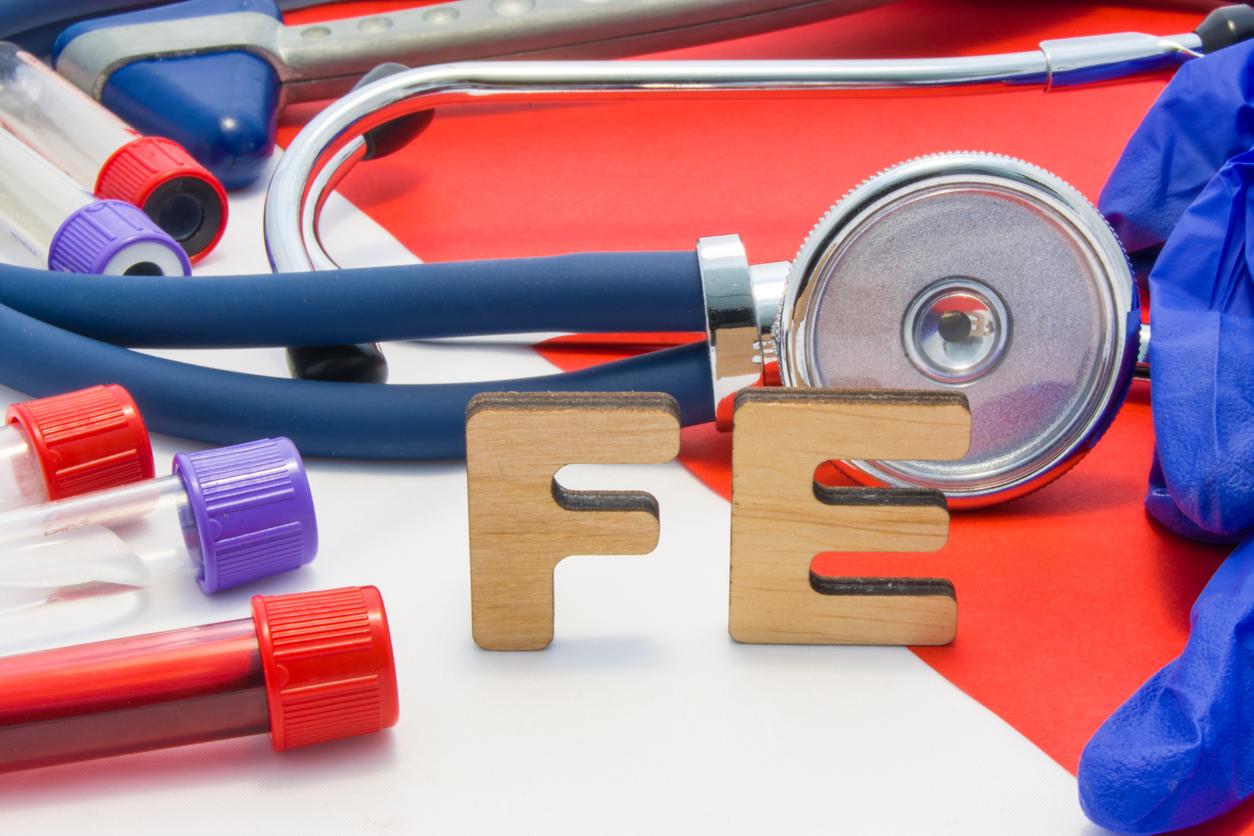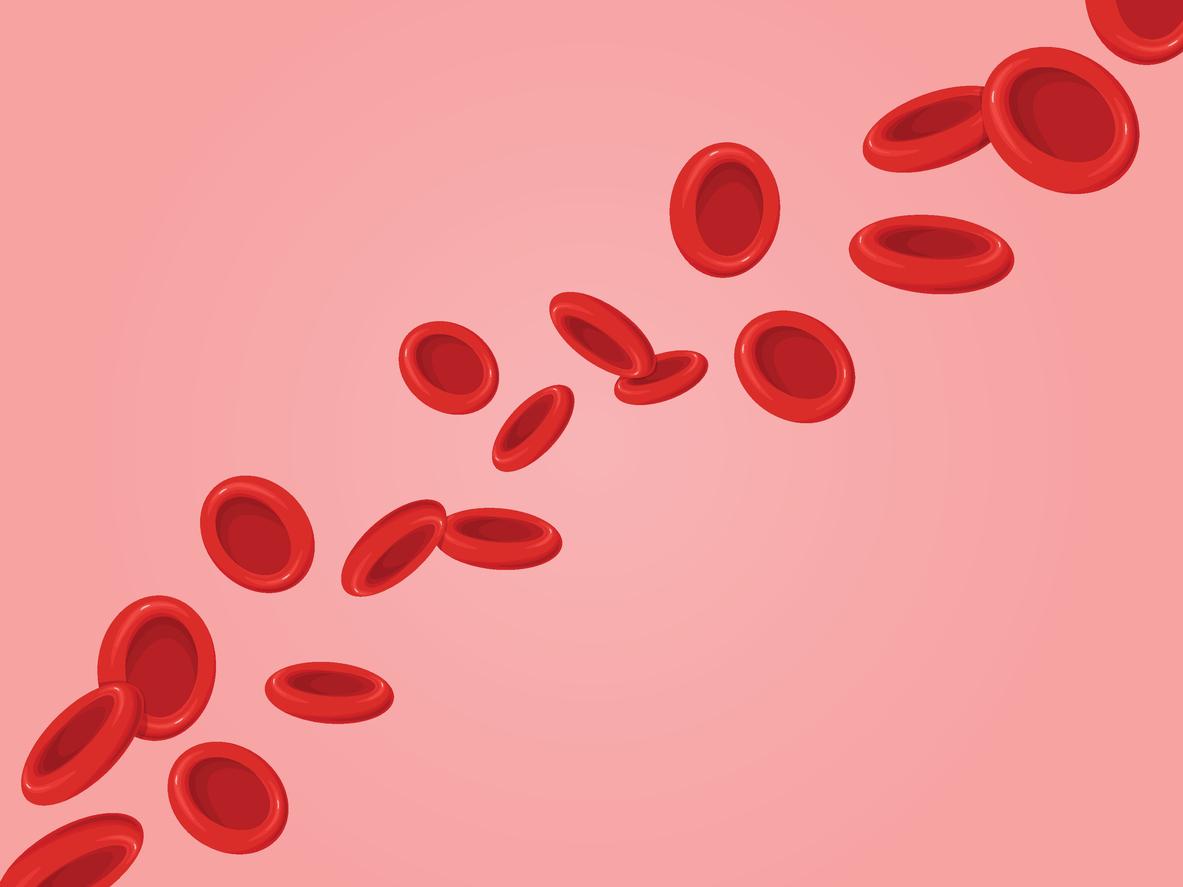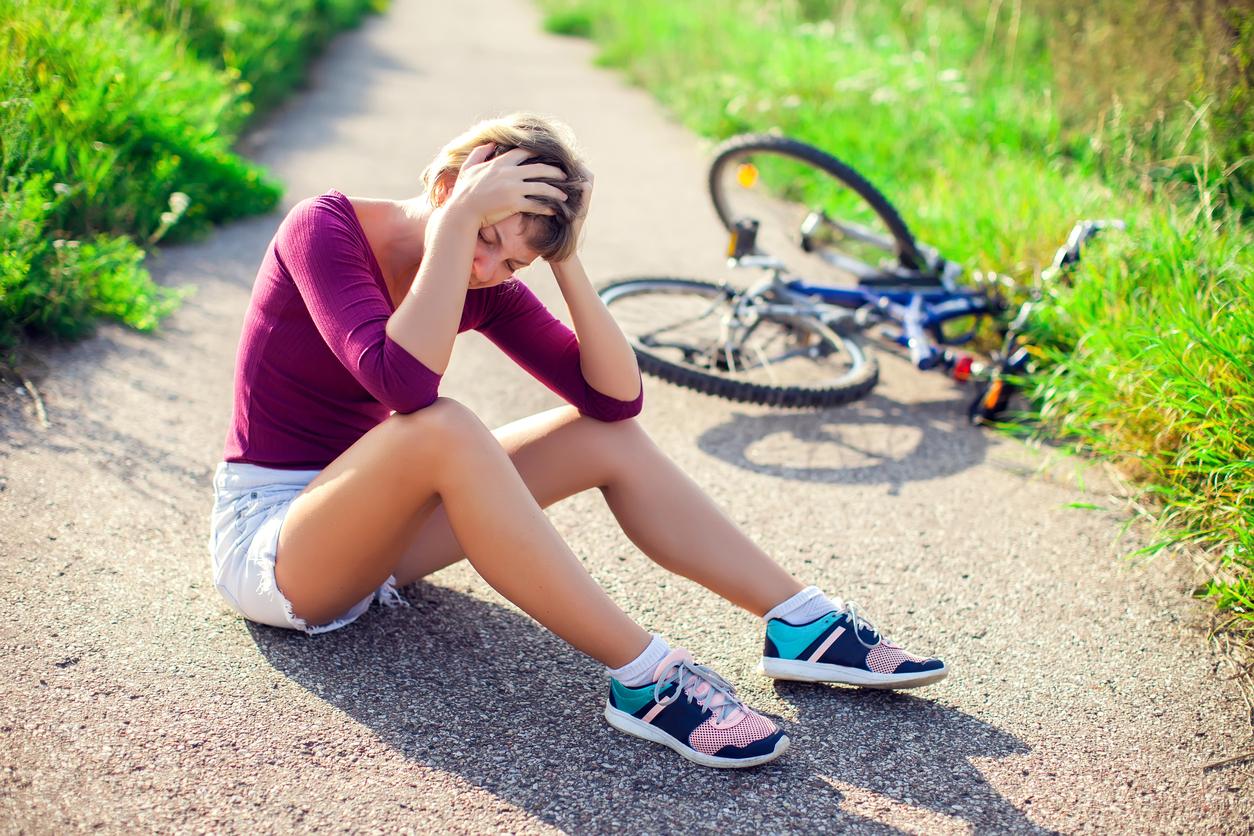Anemia leading to poor tissue oxygenation, the first symptoms are often fatigue associated with rapid shortness of breath disproportionate to effort. These symptoms are also aggravated at altitude. Immunity can also be weakened, making the body more vulnerable to infections.
Discomfort triggered by getting up or standing for a long time can also be warning signs. Finally, the face is often (but not systematically) pale, even discolored, the feet and hands systematically cold.
Analyzes to see more clearly
In case of doubt, the blood test reveals anemia when the hemoglobin level is less than 120 g/l in women, 130 g/l in men. Be careful in pregnant women, the standards are different: we can only speak of anemia below 105 g/l.
In case of anemia, it may be interesting to assay the mean globular volume (MCV): if it is reduced, it is probably an iron deficiency, but if it is increased it is rather a deficiency in vitamins B9 and/or B12, which are also responsible for anemia.
The determination of ferritin is also an additional index to assess an iron deficiency. If so, it is below 25μg/l, 50μg/l for a postmenopausal woman or a man. It should be noted that however, ferritin is increased in the event of intestinal dysbiosis (imbalance): it is indeed an inflammatory protein, the level of which increases in the presence of inflammation. But it will also be increased if there is iron overload, liver damage or hemochromatosis.
Anemia can also be an indication and/or a consequence of intestinal dysbiosis, or even a symptom of celiac disease (gluten allergy). Hence the interest of looking for the cause before systematic supplementation…
Anemia can have many causes
If there is a real iron deficiency in a woman, bleeding periods are obviously the first cause to look for. Accidental haemorrhages, or consecutive to an operation are also responsible for an increased loss of iron. Pregnancy and lactation periods are also iron-consuming.
But much more frequently than one might imagine, anemia can be due to a deficiency in vitamin B9 or vitamin B12; these vitamins are both necessary for the formation of red blood cells. Their deficiency therefore leads to anemia, but also fatigue, sleep and memory disorders, depression, digestive disorders.
An unbalanced or even deficient diet and poor intestinal absorption are often the first culprits. Iron is normally absorbed in the intestine. If the intestinal mucosa is inflamed, the trace elements and vitamins will no longer be assimilated by the body.
Parasitosis can also modify absorption. If the anemia appears after several months or years of intestinal inflammation or after a change in diet, it is only the tip of the iceberg: it will only be resolved in the long term by restoring the ground.
Anti-iron deficiency solutions
Nutritional measures should be put in place to increase food intake: cocoa, liver, meat, red wine, legumes, eggs, oysters, clams, dried fruits, spirulina, spinach, parsley, watercress, sesame… are rich in iron .
The iron present in meat and animal products is much more assimilable by the body than the iron present in plants: it is heme iron, absorbed up to 20 to 25%. In plants, it is iron in non-heme form, assimilated only up to 3 to 5%.
Note that tea limits the absorption of iron, just like copper and zinc which use the same carriers to pass the intestinal barrier. Coffee doesn’t mix well with iron either, as do legumes and whole grains.
Three basic tips
If supplementation is necessary, prefer iron of natural origin: in the form of oligotherapy vials, or through lithotherapy using the Hematite D8 remedy. Hematite is a rock composed of 70% ferric oxide and 30% iron. It is indicated in case of anemia, fatigue, hypotension… The alcohol-free version can even be used by pregnant women.
Supplementation with B vitamins of natural origin will be almost mandatory supplementation, accompanied by pre- and probiotics.
Finally, nettle has always been traditionally associated with the treatment of anemia: its richness in minerals, in particular silica and iron, its concentration in chlorophyll too, make it the ally of choice… for iron health!
Thanks to Marie Chetaille, naturopath contributor to Therapistsmagazine.com
Read also :
- My anti-anemia plate
- Anemia linked to hearing loss
- Anemia: what signs should alert us?










